PHOTOS: ASYLUM SEEKERS FACE HARSH CONDITIONS AS TITLE 42 EXPIRES
May 17, 2023 by JOE ORELLANA
Share this article:
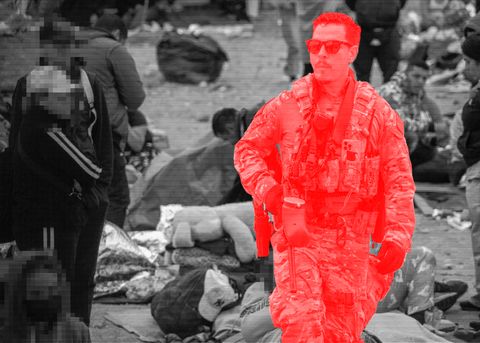
Title 42, the policy drafted by Stephen Miller under the Trump administration, has ended. Under Title 42, the United States could turn away the majority of asylum seekers with the justification of the COVID-19 pandemic.
Asylum seekers journeyed to the Southern California border last week as Miller’s policy ended. In camps at San Ysidro and Jacumba, thousands of migrants spent days with neither shelter nor shade as they waited for Border Patrol to process their applications.
Countless families, including infants and pregnant mothers, made do with one portable restroom per roughly one thousand asylum seekers. Per a USIPC survey of migrants at the Jacumba camp, 53% of those surveyed said Border Patrol was not giving them enough water for the day. All said they were not given enough food. All said they were not given adequate shelter, “such as shade to protect from the sun.”
SAN YSIDRO, MAY 11TH
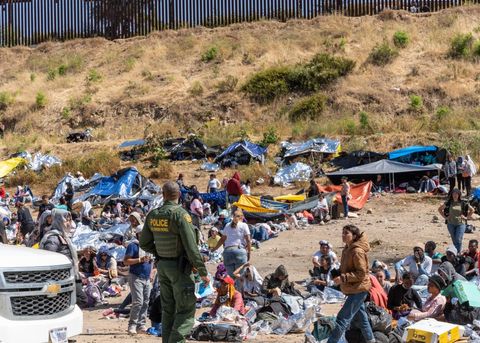
Title 42 is set to expire tonight, and approximately five hundred migrants who are seeking asylum have been waiting between the border walls for up to ten days. Among the hundreds, many have been here for several days. One man I spoke to had been there for a week.
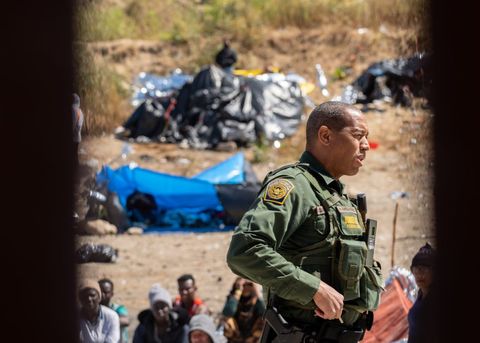
They do not have adequate shelter, and have been sleeping outside on the dirt. During the day, they do not have access to shade, and so several people have crafted makeshift hats from discarded cardboard.
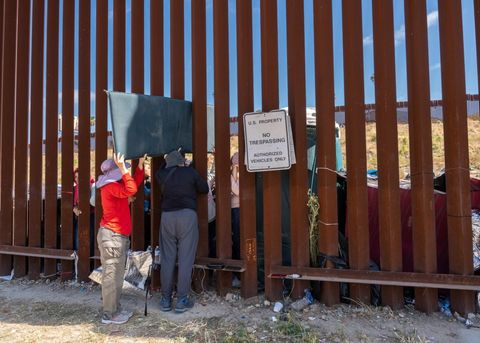
Others have been using emergency blankets, trash bags, and donated cloth propped up with sticks as shelter from the elements. When I arrived, one man was asking volunteers on the US side to hand him a discarded trash bag, so that he could cover up a tear in his makeshift tent.
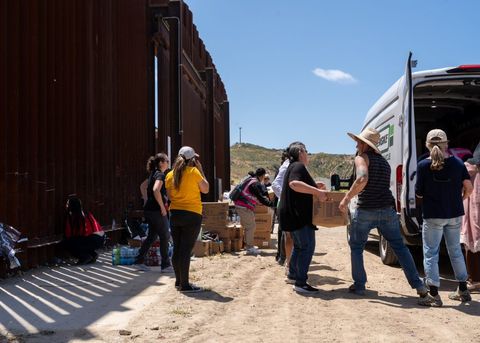
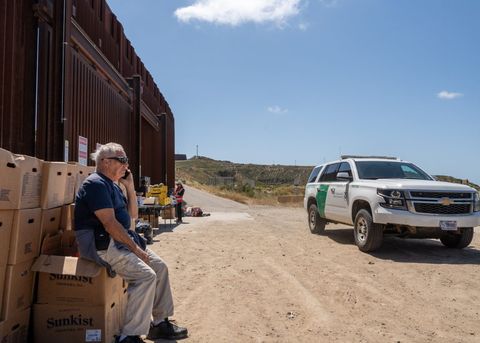
Through the sounds of hundreds, there were several moments where the distinct cry of an infant broke through the wall of noise.
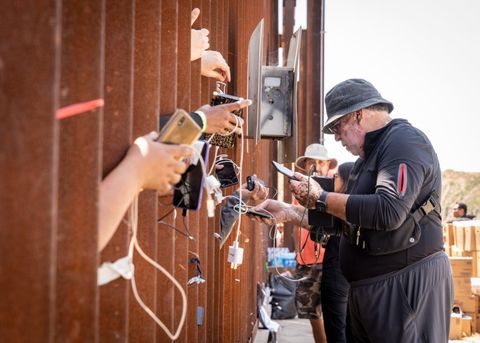
Many asylum seekers lined the fence, reaching out to the US side, pleading for electricity. Their phones are their link to the outside world at this moment, and with Border Patrol’s move to the CBP One app, the process of seeking asylum may depend upon access to a smartphone.
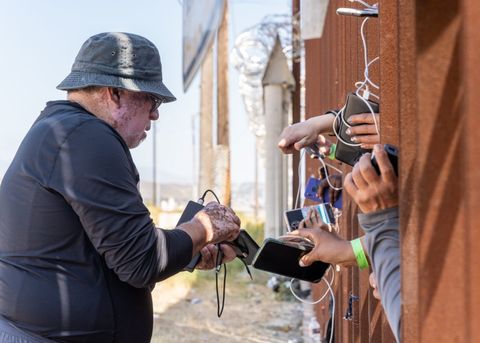
One woman asked me for a charger so that she could see how her children were doing.
Volunteers provided as many as they could.
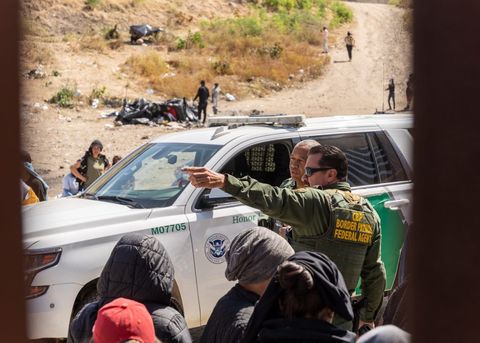
An asylum seeker had a medical emergency and was driven off by Border Patrol agents, to meet an ambulance at another gate. This was despite agents asking volunteers to clear the nearest gate so that an ambulance could pass through—the reason for the diversion is unclear.
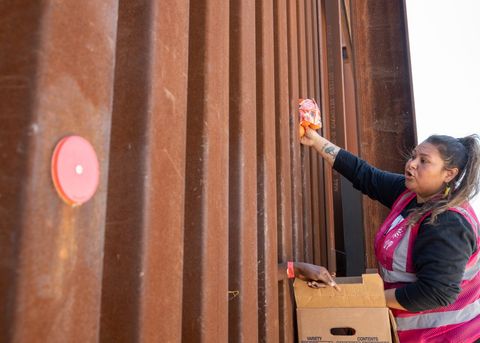
The desperation with which people approached volunteers conveyed the depth of their thirst and hunger. On prior days, asylum seekers were given sub-standard food. I was only able to see one portable restroom for the many hundreds of asylum seekers.
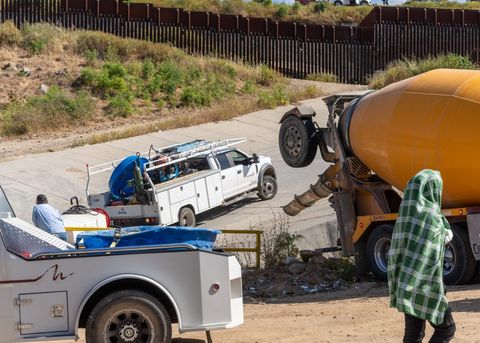
Inexplicably, construction work was going on a short distance from asylum seekers’ makeshift shelters.
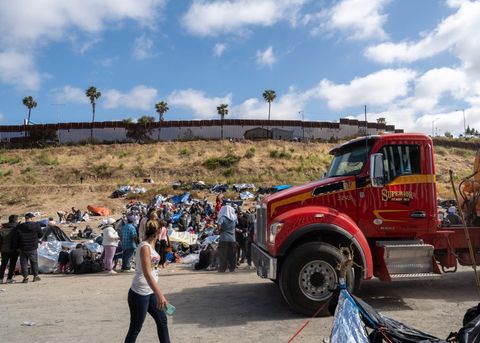
The Biden administration is set to turn away many asylum seekers if they can’t prove they sought asylum elsewhere before the US. Critics say this breaks a campaign promise and embraces a policy that Biden had criticized the former president for.
Original thread here.
san ysidro, may 12th
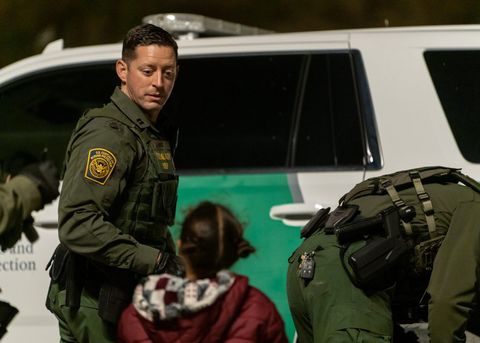
Hundreds of asylum seekers waited for the expiration of Title 42 last night, sheltering and warming themselves between two 30-foot border walls between Tijuana and San Diego. As evening turned to night, most of the volunteers and press put on extra layers to deal with the cold.
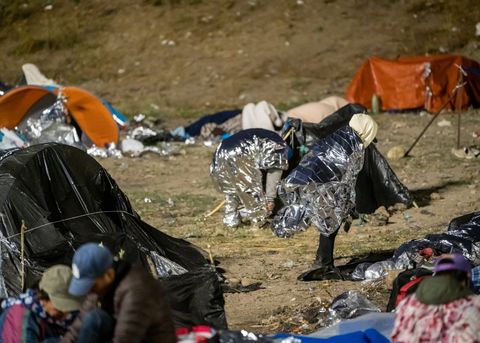
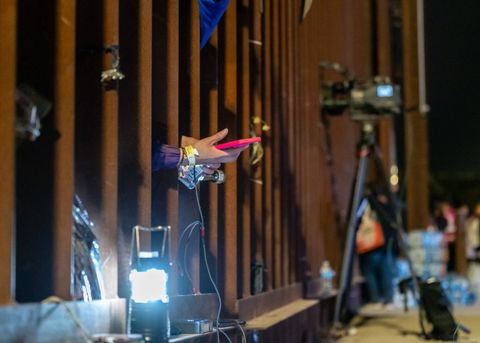
Asylum seekers wrapped themselves in donated blankets and mylar thermals. Countless asked for additional layers through the posts of the wall. As In the afternoon, a substantial number of migrants gathered at the wall facing the US to try and charge their phones.
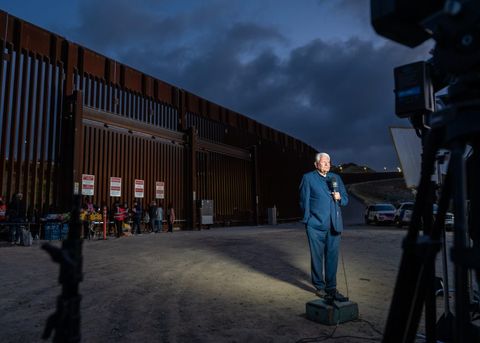
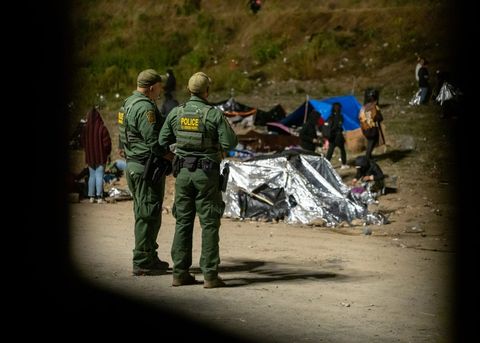
Many outlets and chargers were provided, but the need was still overwhelming. Asylum seekers are hoping to keep in touch with family, and to utilize the CBP One app—an application meant to streamline the asylum application process, but has been fraught with issues.
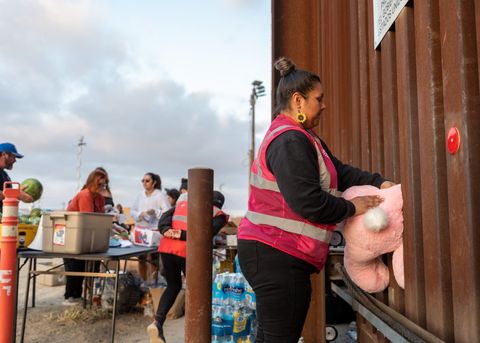
Given the number of small children in the ad-hoc detention encampment, people have donated stuffed animals. Due to the extreme lack of resources, some asylum seekers have taken to using the stuffed animals as pillows.
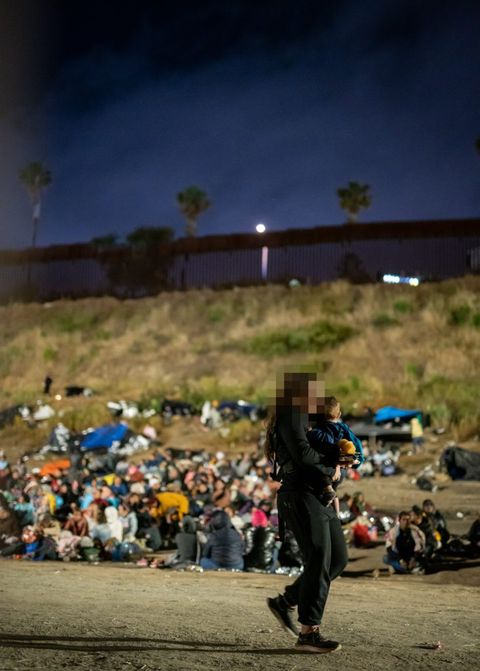
The sounds of crying infants and children shot through the canyon, from the evening into the night, cutting through the noise of the crowd and the wind.
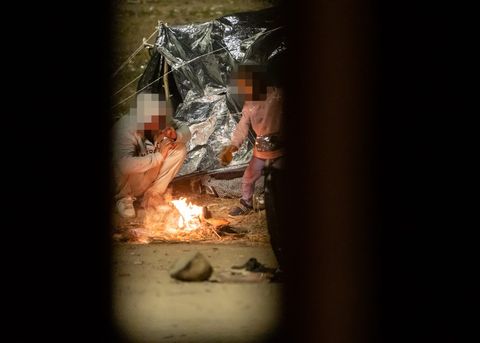
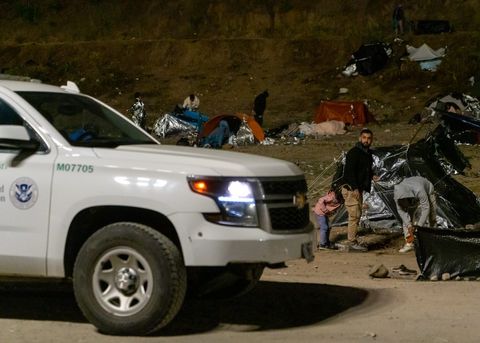
One family’s needs was reported on by CBS8.
This video depicts a father hugging his daughter. I believe I photographed that same father at night, being told to extinguish his campfire by CBP.
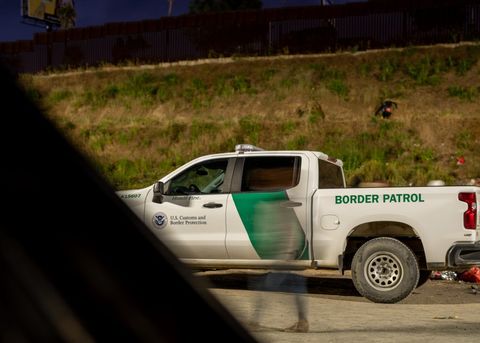
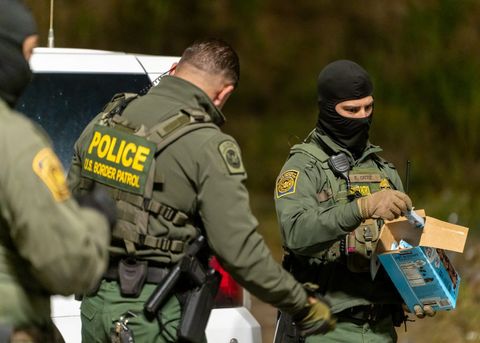
At 9PM, as Title 42 expired, border patrol handed out granola bars and bottles of water. One wonders whether an organization of that size can afford more substantial meals than Costco branded snack bars.
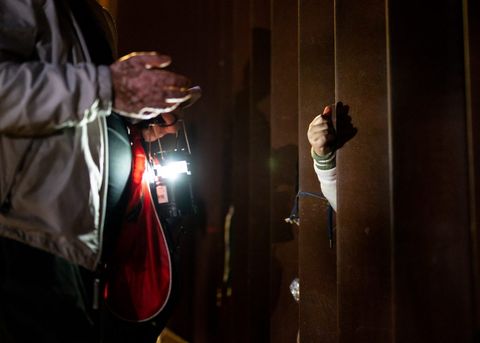
I’ve seen a couple organizations aiding asylum seekers on the US side. They include Universidad Popular, AFSC San Diego, and Friends of Friendship Park.
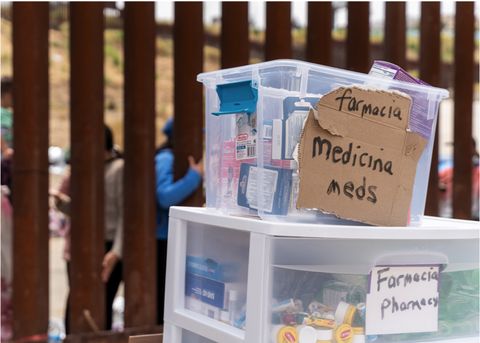
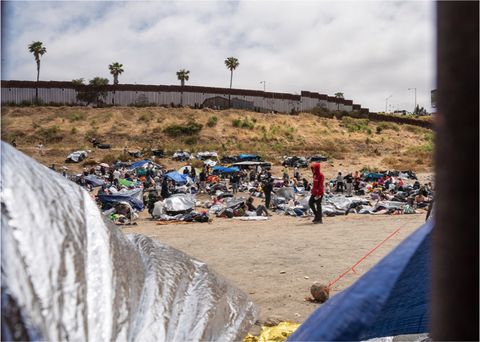
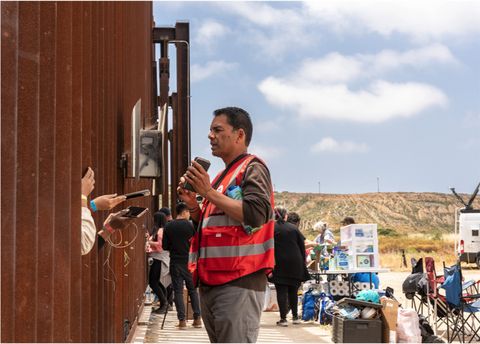
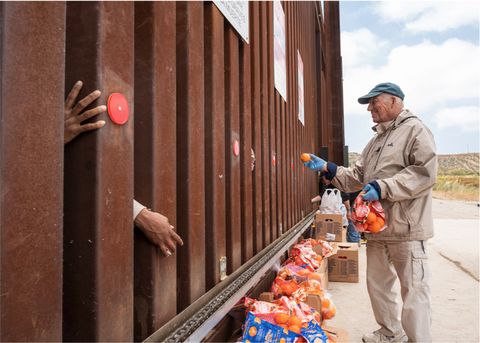
Brief update: some asylum seekers have been processed, with small groups being taken by Border Patrol to the port of entry to make their asylum claim. Blankets, food, and electricity are still needed at San Ysidro. Volunteers have been working all day to distribute aid.
Original thread here.
SAN YSIDRO, MAY 13TH
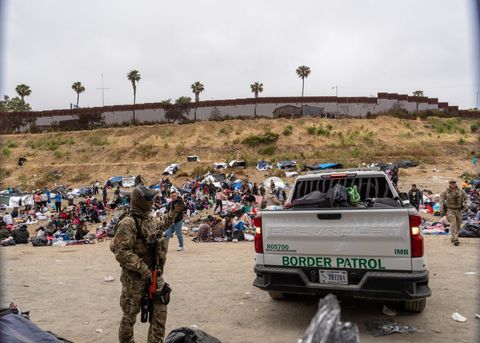
Hundreds of asylum seekers remained in no the-man’s-land between Tijuana and San Diego today. I’m told CBP may have accelerated moving migrants to the port of entry late last night, using busses and more vans. Asylum seekers are still arriving in the camp, however.
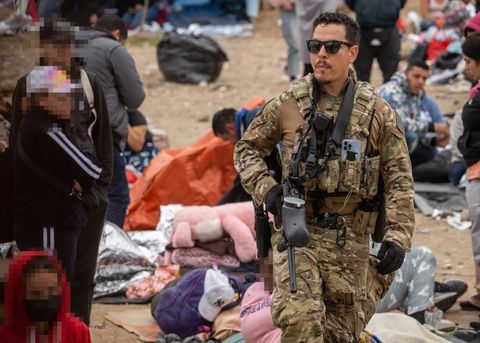
When I arrived today, an ICE Special Response Team was walking through the camp as CBP agents responded to a call for medical assistance. As an asylum seeker was aided in walking to a van, an SRT agent trailed behind with a less-than-lethal firearm. Others carried the same.
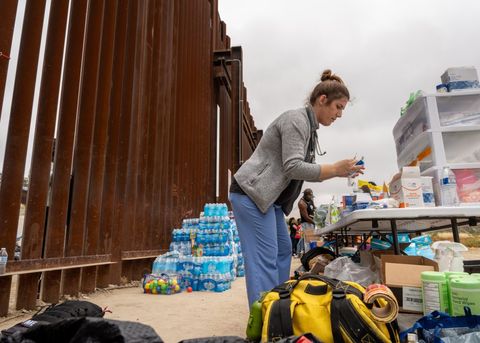
More medical aid was provided today. Broadly, I’m told there were a lot of sore throats, and saw some asylum seekers receiving medicine for an upset stomach.
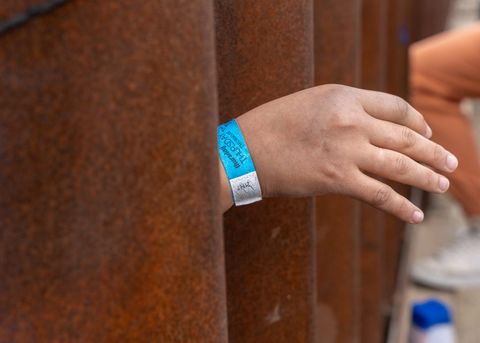
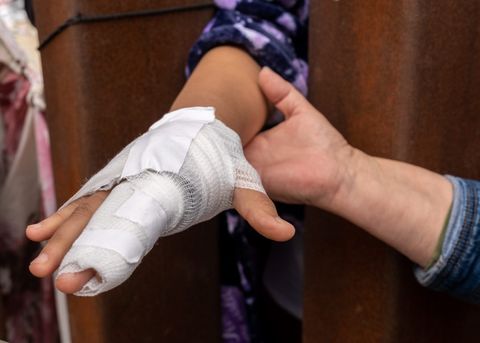
One asylum seeker sustained multiple fractures in their hand and broke their finger. A volunteer medic fashioned them a splint and support, as well as bandaged the injury.
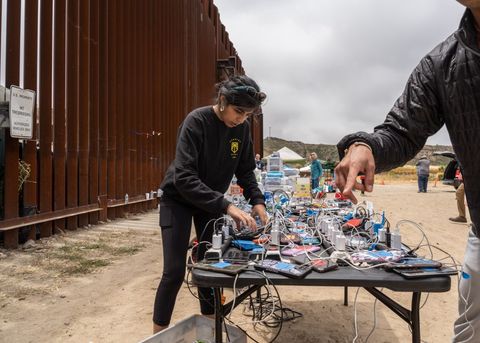
I’m told some volunteers were stopped at the intersection connecting to the backroad that leads to the camp. A CBP agent on an ATV told the volunteers that “there were too many people” up ahead, and told them to wait until people left.
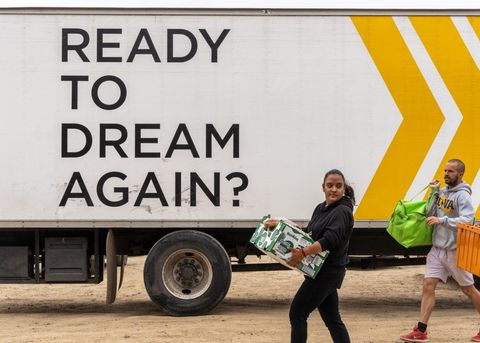
I spoke with the PIO on the scene. They told me there is no rule as to how many civilians are allowed up at the fence. He told me it was federal property, and it’s not supposed to be publicly accessible in the first place—volunteers are being allowed to work in spite of that.
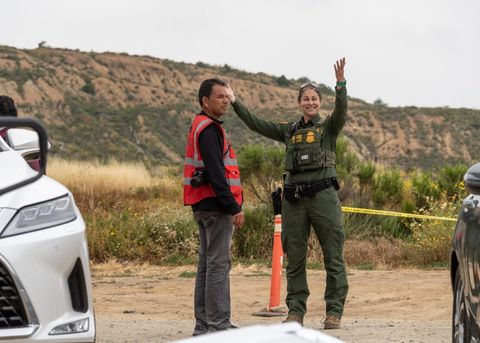
A CBP agent told a volunteer that the other camp is being sufficiently cared for. Asylum seekers have told press that the camp in question is full of starving, thirsty, and sick people. Neither volunteers nor media are being allowed near that camp.
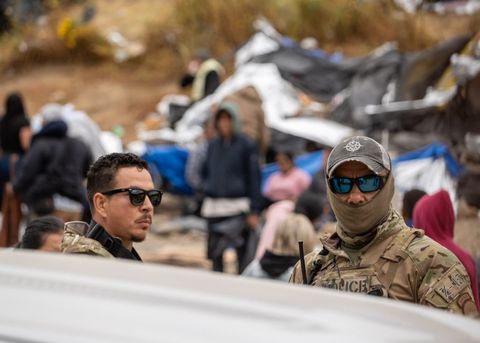
That agent said hundreds of people are currently at that camp. They claimed three people were transported to the hospital today, but didn’t specify if that was from both camps.
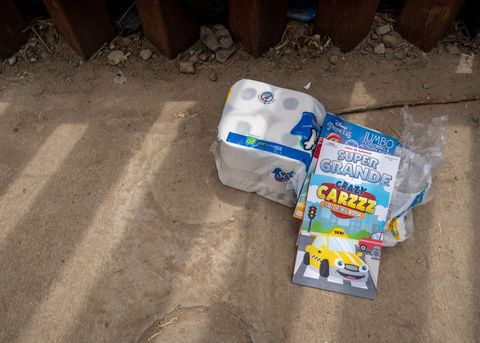
I’m told CBP complained of trash in the area following the past days’ volunteer work. Several volunteers spent the morning cleaning up. I’ve seen a couple organizations aiding asylum seekers on the US side. They include Universidad Popular, AFSC San Diego, Friends of Frienship Park San Diego, and Border Kindness.
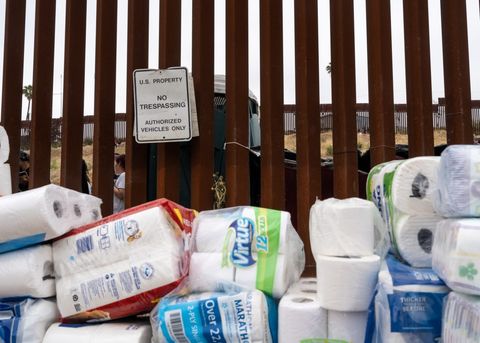
There’s also an Amazon Wishlist for aid workers.
Original thread here.
san ysidro, may 14th
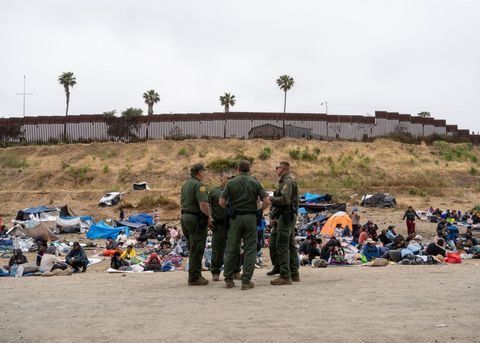
CBP has cleared the San Ysidro camp of migrants, emptying the ad-hoc detention area between #SanDiego and Tijuana by 4:00 PM today. I’m told that CBP’s Office of Field Operations is handling this particular camp’s asylum application processing.
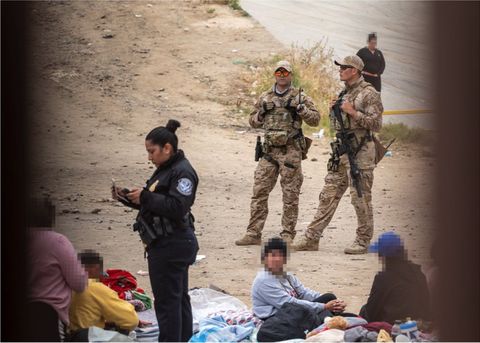
At 12:30 PM, there were still asylum seekers. Far more agents than prior days walked about, several working to expedite the process of transporting and evaluating asylum seekers. Multiple SRT agents carried rifles—live munitions as opposed to yesterday’s less-than-lethals.
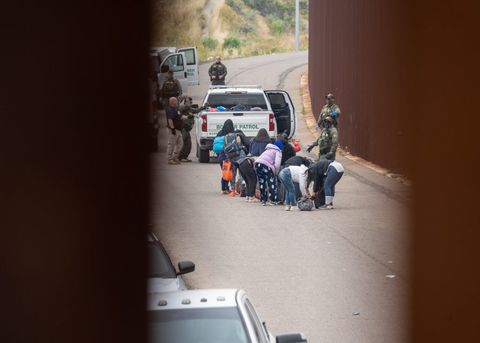
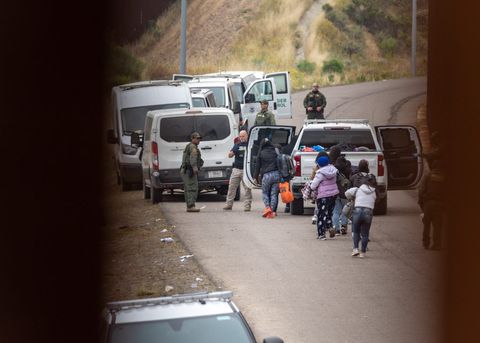
I saw numerous migrants line up behind vans, all under the direction of agents from multiple offices of CBP. Several agents wore gaiters. When I returned from covering the Friends of Friendship Park Mother’s Day March, the camp was empty.
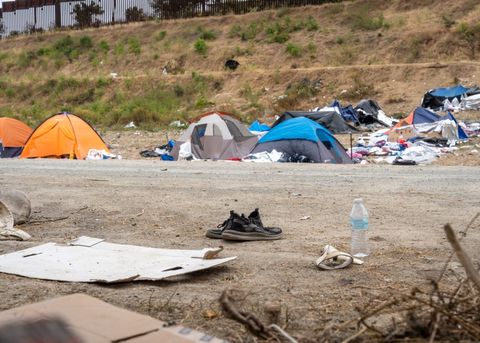
Between noon and four, hundreds of asylum seekers had been transported. CBP is requiring that migrants remove the laces from their shoes before being transported.
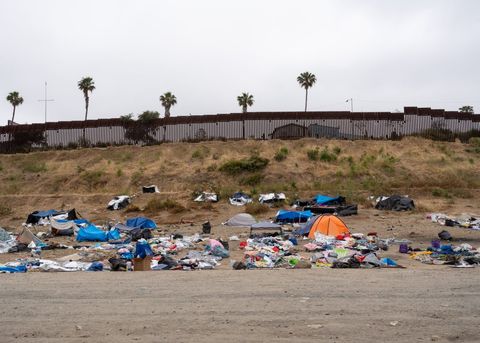
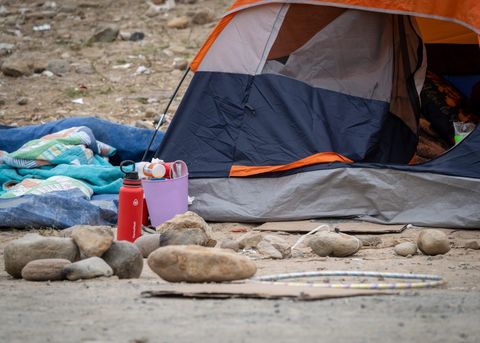
They are also seemingly not allowed to use trash bags to carry their items, so volunteers sought donated backpacks. I saw metal water bottles left behind as well—possibly, asylum seekers are being stripped of items that CBP deems potentially harmful before being moved.
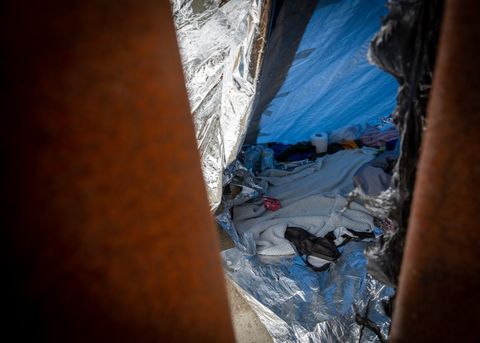
Among the clothes, blankets, and tents left behind, I saw small stuffed animals. Now that the makeshift shelters were empty, I was able to photograph the interior of some along the fence. People had been sleeping with mere blankets between themselves and the cold hard ground.
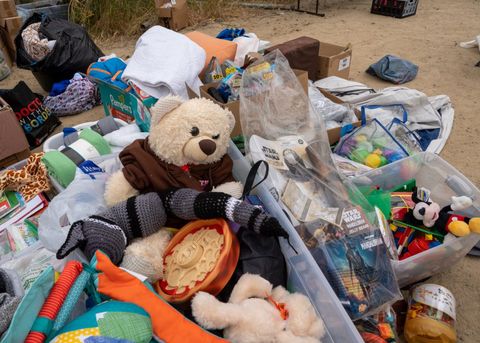
Volunteers were busy loading up supplies and donations for the camp in Jacumba. Among them were several children’s toys and clothes.
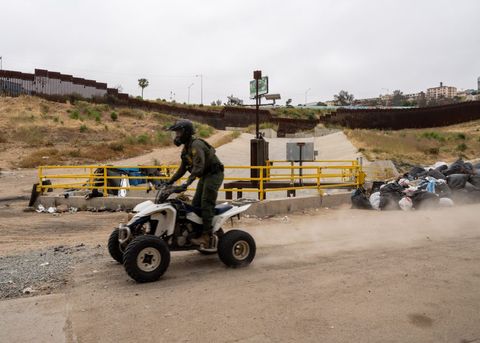
I’m told that the other San Ysidro camp saw a reduction in numbers. Per volunteers who spoke with CBP: the other camp of men initially numbered at 1400. By noon, I’m told it was reduced to 500. By 2PM, 200. Volunteers and media still have not gained access.
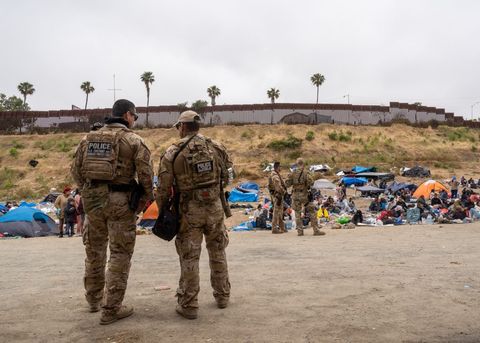
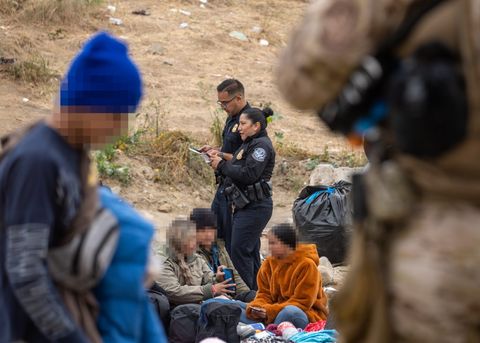
I’m told the men from the other San Ysidro camp will be processed by Border Patrol, as opposed to OFO like the pictured camp.
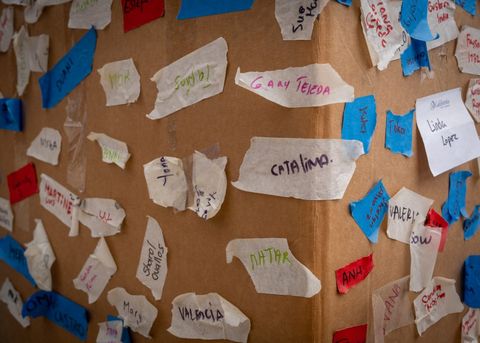
A box that held up a charging station run by volunteers for asylum seekers. Devices that had been charged and returned had their name-labels removed and placed on the box. Orgs aiding asylum seekers on the US side include Universidad Popular, AFSC San Diego, Friends of Frienship Park San Diego, and Border Kindness.
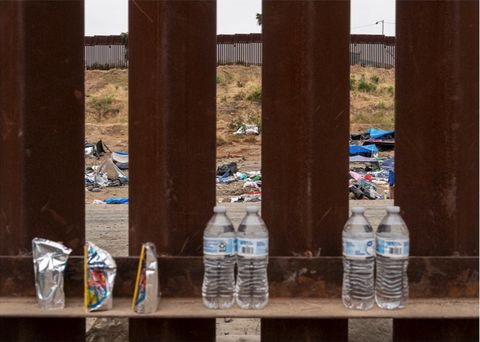
I’m told aid workers at this site are going to pivot to aiding the Jacumba site. Here is an Amazon wishlist for supplies for aid workers.
Original thread here.
jacumba, may 15th
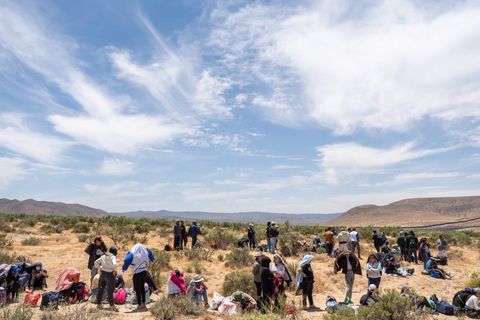
Hundreds of asylum seekers languished under the desert sun in Jacumba today, as the group waited to be processed and transferred by Border Patrol. The camp itself was down a back road from the highway, beyond uneven hills and wilderness.
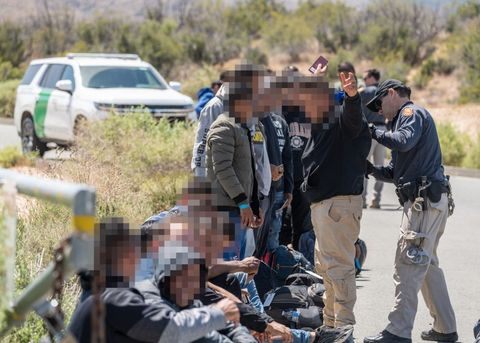
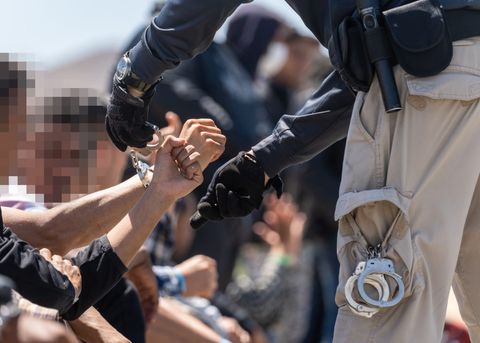
A more direct route to the camp was blocked off when I arrived. Agents were processing a group of seemingly only men, checking documents and questioning while a contractor patted down and handcuffed the asylum seekers. An agency is contracted for these searches, and transport.
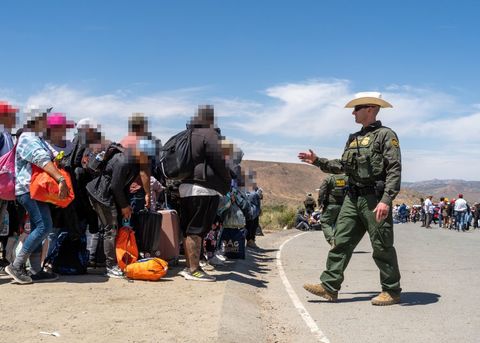
The remaining crowd at the camp was comprised of people from Latin American, Eastern European and Asian countries. One asylum seeker was desperate to tell me she’d waited six days in the desert, trying hard to convey the time through the little English she knew and hand signs.
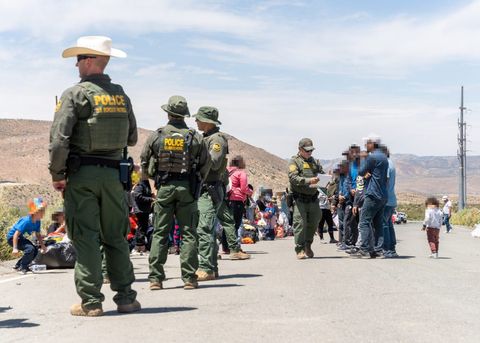
Others I spoke to said similar—many, including families with small children and infants, had been out at that camp for more than a week. In one group of asylum seekers who’d been gathered by BP according to their country of origin, an agent counted 48 families.
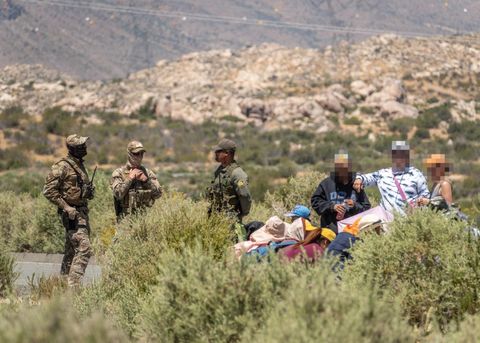
An aid worker told me that there are three camps in Jacumba. The one I visited contained roughly 800 people at its peak. The others contained 200 and 150 respectively.
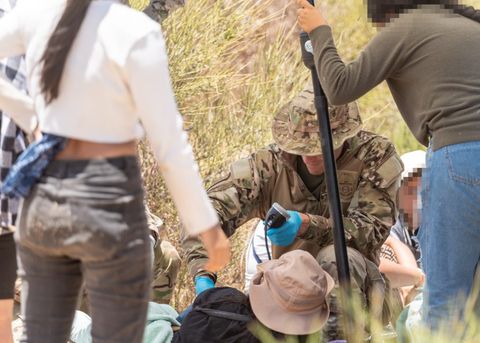
While I was at the camp, an asylum seeker received medical attention. I’m told that their blood pressure was abnormally high, but I couldn’t get any more information. Many were hesitant to speak to press, but some did so on the record anonymously.
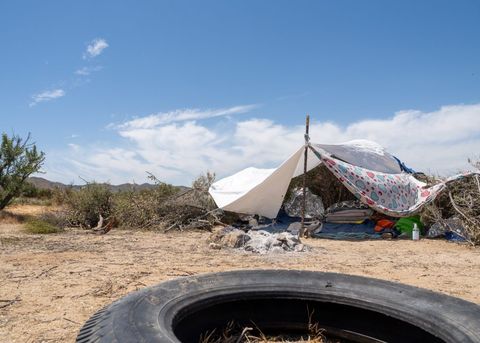
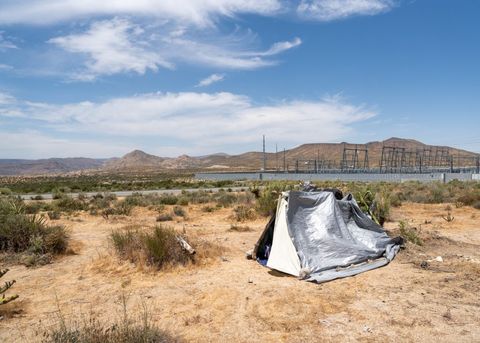
They described the camp and the journey as hard. The camp was hot during the day, and freezing at night. Before aid workers mobilized, many were thirsty, and languished under the hot sun without shade. In the past week, the high temperatures approached the triple digits.
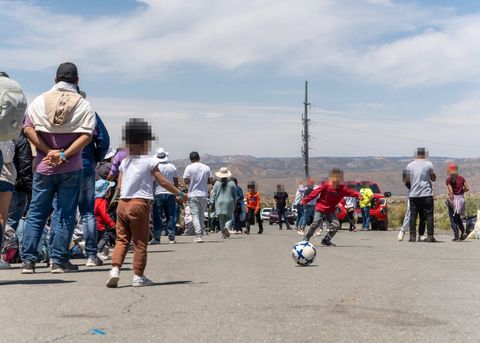
An aid worker told me that CBP didn’t alert residents to the camp, and that the asylum seekers were found by a local in the desert.
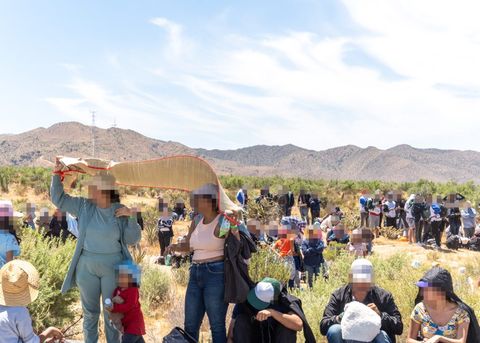
An asylum seeker asked me if they would be deported. Despite agents processing people, several migrants were not adequately informed as to what was going on. I learned of this through Border Kindness.
Original thread here.
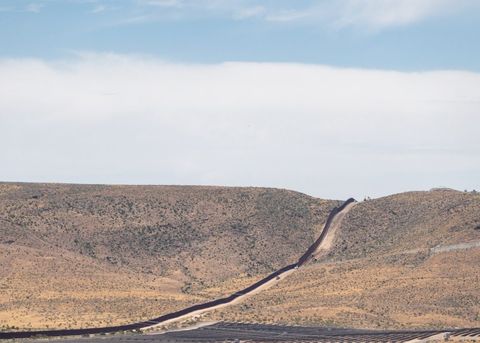
Volunteers at the Jacumba site are working to clean up the campsites now that CBP has cleared them. They are seeking volunteers.

